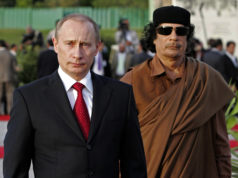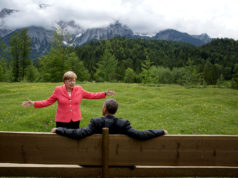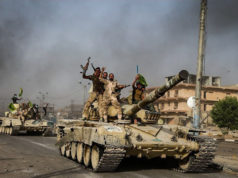At least 25 people were killed and 272 wounded over the weekend in Egypt during the most violent clashes since former President Hosni Mubarak stepped down from power in February. The clashes erupted during a protest on Sunday in support of equality and protection of Coptic places of worship, which have faced increasing violence over the last several months. The peaceful protesters were reportedly attacked by unidentified plainclothes thugs, and approximately six died after an armored security vehicle plowed into the crowd.
Other places affected by the wave of Arab protests against their respective regimes are also showing their religious intolerance. In Libya on Friday, the eve of Yom Kippur, protesters gathered in Tripoli and called for the deportation of David Gerbi, a Libyan Jew who immigrated to Italy with his family at the age of 12. Gerbi returned to Libya last month, joined the rebel movement, and has been trying to reopen the Dar Bishi Synagogue — closed since Moammar Qaddafi expelled the country’s Jews in the 1960s. The protesters waved signs that said: “There is no place for the Jews in Libya,” and “We don’t have a place for Zionism.” The last Jew in Libya died in 2002.

David Gerbi in front of the synagogue in Tripoli, Libya. |
Moreover, in Iraq, the U.S. Embassy is reportedly working with an Anglican priest to assist the nine remaining Jews in the country’s capital to emigrate, if they choose to, after their names appeared in a WikiLeaks cable, endangering their safety. According to the priest, Rev. Canon Andrew White, the Jews of Iraq “belong here,” but are now in danger and should leave. If White persuades Baghdad’s Jews to relocate, it will mark the end of a 2,700-year Jewish presence that numbered 130,000 in the 1950s but just 35 by the time of the U.S. war in 2003. Today, the last synagogue in Iraq has been closed, and remained as such even during the recent High Holidays.
Whether its against Christian or Jewish minorities, countries affected by the recent Middle East uprisings are showing their true colors. But as David Gerbi noted, “Respect for religious liberty and human rights in general is an essential basis for democracy. Many Libyans are ready for a new society, but if they permit anti-Semitism to rear its ugly head again, all will be lost.”





